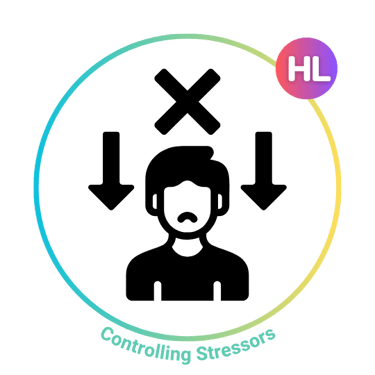





Overview
In sport psychology, stressors are situations, events, or demands that create psychological strain for athletes. These stressors can influence thoughts, emotions, and performance. A crucial distinction is whether a stressor is controllable, meaning the athlete can influence it, or uncontrollable, where the athlete has little or no ability to change the situation. This distinction shapes how athletes respond and cope, and it plays a significant role in mental preparation and emotional regulation.
Controllable stressors are those that an athlete can take action to influence or manage. These might include:
Pre-competition routines
Nutrition and hydration
Preparation and training habits
Focus and mindset
Time management and rest
Because these stressors can be addressed, athletes often feel more confident and in control when dealing with them. Strategies such as goal-setting, planning, self-talk, and visualisation are commonly used to manage controllable stressors. Learning to take ownership of these factors can reduce anxiety and improve mental readiness.
On the other hand, uncontrollable stressors lie outside the athlete’s direct influence. These might include:
Weather conditions
Referee decisions
Opponent behaviour or ability
Crowd reactions
Unexpected delays or cancellations
Although these stressors cannot be controlled, how athletes perceive and react to them makes a significant difference. Athletes who develop strong coping strategies—such as acceptance, reframing thoughts, or focusing only on what they can influence—are better equipped to maintain performance and emotional balance, even in unpredictable conditions.
The ability to distinguish between controllable and uncontrollable stressors helps athletes prioritise their energy and attention. Trying to control the uncontrollable can lead to frustration, distraction, and mental fatigue. Focusing on what can be controlled supports confidence, composure, and clarity under pressure.
In summary, stressors in sport psychology are best understood in terms of their controllability or uncontrollability. Recognising this difference allows athletes to respond more effectively, build resilience, and stay focused on actions that support performance and psychological well-being.






